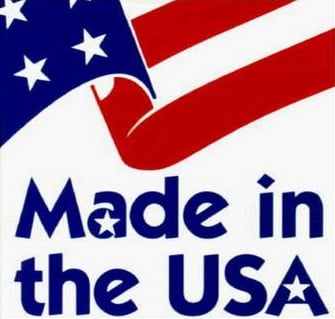
Effective July 1, 2012, California has a new Preliminary Notice form titled “California Preliminary Notice” (the old title “Preliminary 20-Day Notice” has been replaced). As always, we like to stay ahead of the “game” and have had these revised forms available since May of 2012! If you need to update just give us a call.
We have the new California Preliminary Notice in both Public and Private Works versions with the all-important transmittal letter included! Our form is typeset not "typed out" so, like previous versions, it is contained on one page. If you remember from a previous blog post, I told you that the transmittal letter should be included to explain the California Preliminary Notice to the recipient. This transmittal makes it clear that the California Preliminary Notice is being given as a matter of California law and does not reflect badly on the “Direct Contractor” of the project. In the past, California law allowed a combined California Preliminary Notice for both public and private jobs… now these should be separate forms as the requirements differ and combining both into one form makes the form very confusing.
This revised CA Preliminary Notice includes new wording and the replacement of the term “Original Contractor” or “Prime Contractor” with the new term “Direct Contractor.” The meaning is the same… a “Direct Contractor” is any contractor that has a contract directly with the property owner. A “Subcontractor”, on the other hand, has a contract with another contractor on the project and does not have a contractual relationship with the property owner!
The usage, timeline, and basic procedures associated with the CA Preliminary Notice remains the same. The preferred way to give this notice is still by certified US Mail, WITH return receipt service. You still give this notice to ALL interested parties like… the property owner, any subcontractor of a higher tier (the subcontractor that you are contracting with on the project making you a sub-subcontractor), to the Direct Contractor, as well as to any construction lender.
In the past, subcontractors have been at the mercy of the Direct Contractor on the project to supply them with the names and addresses of the property owner and any construction lender. The new Section 8208 of the CA Civil Code now requires the direct contractor to supply to “any person seeking to give preliminary notice” both the name and address of the property owner as well as any construction lender. Section 8210 of the CA Civil Code also requires the property owner to supply the names and addresses of any construction lenders, for loans obtained after commencement of the work, to anyone who has given preliminary notice. As we have always recommended, and that has been included is Section 8214 of the CA Civil Code, any server of a preliminary notice can and should file the preliminary notice with the county recorder… especially if large sums of money are involved! When this is done, the County Recorder will make a “good faith” effort to notify them of a Notice of Completion or Notice of Cessation that is filed on the project. Remember, the timeline for filing a mechanics lien is shortened on any project when either a Notice of Completion or Notice of Cessation is filed!
Be aware that section 8216 of the CA Civil Code REQUIRES every subcontractor on the project to give the California Preliminary Notice for any work over $400 in value! Failure to do so is grounds for disciplinary action from the CSLB!
BE SURE TO READ THE OTHER ARTICLES WE HAVE REGARDING THE CALIFORNIA PRELIMINARY NOTICE AND THE CALIFORNIA MECHANICS LIEN PROCESS.
Topics:
California 20 Day Notice,
California Pre Lien,
CA Pre Lim,
CA Pre-Lien,
California Preliminary Notice,
CA Preliminary Notice
Ok. So you send a California 20 day notice to the property owner and to the prime contractor (as of July 1, 2012 the prime contractor is now called "Direct Contractor" and the Notice is called the CALIFORNIA PRELIMINARY NOTICE) on the project... you know... just like you’re supposed to. Then it hits the fan. You get a call from an indignant general contractor who asks you why you do not trust his company. "I pay ALL my subs"... he says so... "Why did you send the owner a Pre-Lien?" Now here comes the kicker... "The owner is freaking out and you just made it hard for me to get a check cut and that makes it harder for me to cut a check to you!"
Now you ask yourself if you should have sent the Preliminary Notice in the first place. You want to keep doing work for this general so the last thing you need is to make the guy mad… right? He’ll never call me for work again you think. Most of the time the general  pays so why was it worth all this hassle, for probably no reason, which might have cost me jobs from this guy.
pays so why was it worth all this hassle, for probably no reason, which might have cost me jobs from this guy.
Let’s clear one thing up right now. Whenever the “people” who have control of the purse strings on ANY job with ANY general have not directly signed a contract with you… SEND THEM THE 20 DAY NOTICE! It protects you (every interested party knows you must be paid), it protects the general (the owner knows he needs to pay the general promptly so he can pay you and keep you happy) and it protects the owner (they know they need to make sure the general is paying you.. his sub)! The bad feelings you have created with the owner and the general are not because you have given them the 20 Day Notice. These bad vibes happened because of the WAY you gave them the Pre-Lim Notice.
“HUH???”… You think.
The real cause of this headache is because most people, general contractors included, look at the California Preliminary 20 Day Notice and see “LIEN!” It doesn’t matter that our California Preliminary Notice Form says right at the top “THIS IS NOT A LIEN”, the fact that they had to sign for it and that it has that “legal” look to it screams LAWYER! And don’t you just love to get legal papers like this yourself? … It makes your day doesn’t it? No wonder someone freaks when they get one of these.
So… what did you do wrong and how can you keep this from happening in the future???
“YOU DIDN’T EDUCATE THEM!” You asked them to “eat” a “dry” legal form without any “sauce” to make it go down easier. ALWAYS include an explanatory letter (the sauce) when you give a Pre-Lien. If you purchase a 20 Day Notice from us or if you purchase ACT Contractors Forms on Disk for California Contractors (or for any other state that uses a notice like this) we always include a transmittal letter just for this purpose. Our letter, and so should yours, tells the person receiving the pre-lien, among other things, that:
1) It is not a lien but rather a notice required by law for THEIR protection.
2) It is to inform the recipient that you are a subcontractor on their project and have a right to lien if you are not paid.
3) It does NOT mean the general is untrustworthy.
4) It does not mean that the general has not been paying you or that the general owes you money.
5) You have confidence in the general.
6) By law, the recipient of this notice has a duty to see that you are paid from payments made to the general for work you have done.
Use this transmittal letter as an opportunity to butter up the general… not tear them down… that way they will still like you… and call you on their next job!
Topics:
California 20 Day Notice,
California Pre Lien,
CA Pre Lim,
CA Pre-Lien,
2012 california construction forms,
NEW California Preliminary Notice
Question: Does the California (CA) 20 Day Notice requirements apply to material suppliers as they do subcontractors?
Posted January 18 by P. Foreman... "We are a MATERIALS supplier, in the form of custom-built wood windows. We do not do any on-site work. Do the same 20-Day notice regs. apply to material suppliers as they do to subcontractors? Also, as building the windows can take many, many weeks with several deliveries to the job-site, can we file a pre-lein up until the LAST delivery, which may be long after 20 days of actually beginning the process of building all the windows?

Yes, the 20-day notice does apply to California (CA) material suppliers in the same way as it does to subcontractors on the job. The purpose of the California Preliminary Notice, aka 20 Day Notice, aka Pre-lim or Pre-Lien, is to inform those parties who have the "purse strings" on the job that somebody is supplying labor and/or materials or equipment on their project and that these same "somebodies" have a right to be paid "out of the property" through the mechanic's lien process if they are not paid as the contract states. Let’s call these "purse string" holders the project "funders" (the property owner, property manager, bank, funding control company- you know, the project funders who cut the checks).
Why is this notice necessary...you ask? Because subs and suppliers are usually "insulated" from the project "funders" by the General Contractor! The only way the project "funders" can truly know who is actually a subcontractor or material supplier on their project is if they are notified of this when they receive a 20 day notice! The project funders usually have no direct dealings with the subs and suppliers. The project funders deal directly with the General Contractor who is, in turn, directly dealing with the subs and suppliers! If you are "cutting" a check to the General Contractor on your job for a progress payment, and you know which subs and suppliers contributed to and should be paid from this progress payment... then you can require lien releases from the subs and suppliers showing they have been paid. The subs and suppliers interests are protected (they get paid what and when they should) and the owner and lenders interests are protected (they will not be surprised by a mechanic's lien from someone they didn't even know about).
You can file a 20-day notice anytime... but you will only have lien rights for work/deliveries of materials (in your case windows) done in the preceding 20 days from the date the Preliminary Notice is served. The value of all work/deliveries of materials made or done prior to 20 days before the Pre-Lien is served cannot be included in any lien that you might file. So, for example, if you are working for a month (30 days) on a project and decide to file a 20 Day Preliminary Notice, you will only have lien rights for the work/materials supplied after day 10 which is 20 days prior to the date the 20 day notice is served on day 30. Serving the 20 Day Notice sooner rather than later is critical to protecting your rights! You MUST make it your standard business procedure to serve the 20-day preliminary notice at the start of the job... preferably right after the contract/agreement/order is signed with your customer... make the 20 day notice part of your paperwork when you begin to first process the order/contract/agreement! Don't put this off ... that way ALL your work/expenses will be covered in any lien you might need to file! Slow pay and NO pay is the rule nowadays rather than the exception... make sure your customers understand that the 20 day notice is a part of doing business with you.
This system works if it is followed yet I am amazed at how often I am contacted by banks and property owners who seek 20 day notice forms and lien release forms for subs and suppliers on their project! The contracting "business" demands that EVERY contractor have their own legal forms, such as these, to be paid! This is the LAW rather than the exception so, Mr. Contractor or Mr. Supplier, if your check is "held up" because you do not have a lien release to give the project owner, as the LAW REQUIRES, it's not their fault now... is it?
Topics:
California 20 Day Notice,
CA Pre Lim,
CA Pre-Lien,
Material Suppliers,
Preliminary Notice
 One of the most commonly requested forms for California is the California Preliminary Notice, sometimes called the CPN Form, California 20 Day Notice or California Pre-Lien or California Pre-Lim. Five different names for the same form. The CPN or California Preliminary Notice, is often the first step in the California Mechanics Lien process so it is no wonder these forms are popular!
One of the most commonly requested forms for California is the California Preliminary Notice, sometimes called the CPN Form, California 20 Day Notice or California Pre-Lien or California Pre-Lim. Five different names for the same form. The CPN or California Preliminary Notice, is often the first step in the California Mechanics Lien process so it is no wonder these forms are popular!
NOTE: CALIFORNIA PRELIMINARY NOTICE LAW CHANGED AND THOSE CHANGES WENT INTO EFFECT JULY 1, 2012. THE FORM USED HAS BEEN CHANGED FOR BOTH PUBLIC AND PRIVATE WORKS. THIS BLOG POST STILL APPLIES AS NONE OF THE 2012 CHANGES CONFLICT WITH WHAT IS SAID HERE!
What is the California Preliminary Notice?
The California preliminary notice or 20 Day Notice as some people call it, is a notice intended to inform a property owner, lender and/or project contractor (NOW CALLED THE DIRECT CONTRACTOR AS OF JULY 1, 2012) or other interested party, that someone is working on the project who has a right to file and enforce a Mechanic's Lien or Stop Notice against the property.
Why is the California Preliminary Notice necessary?
Think about it from the property owner's position. The property owner typically has a contract with a general contractor to do all the work on the project. The General then hires speciality contractors to do those parts of the project covered under their speciality. Plumbers do the plumbing, electricians run wires and do the electrical and so on. The property owner may see many different people working but really doesn't know where these workers are from! They might be employees of the General Contractor or someone else. Some property owners may not see the job until it is finished so how could they know who was working on or supplying materials for their project unless you NOTIFY them with a California Preliminary Notice!
It is unreasonable to hold the property owner accountable, to make sure everyone is paid for their contributions to the work, unless the property owner KNOWS who needs to be paid from every check they cut! If the General bills for the completed roof, and the roofing contractor on the job has not notified the property owner of their existence through a CPN, then the property owner can reasonably assume the roof was done by the General's own men and can pay the invoice without further condition. Likewise, if the roofing material supplier did not notify the property owner through a California Preliminary Notice, why would the property owner question if the materials have been paid for?
If the property owner pays the general for the roof, and the general does not pay the roofing contractor who because of this does not pay the roofing material supplier, the owner has acted properly given the information that they have! If both the roofer and the roofing material supplier had each properly notified the owner through the California Preliminary Notice, the property owner would be legally bound to make sure these parties have been paid or face a mechanic's lien from both.... See! How can anyone be expected to act on information they don't have? You can't make sure someone is paid unless you know they NEED TO BE PAID!
Who needs to give the California Preliminary Notice?
If you have a "direct contractual relationship" (for definitions be sure to read Part 1 of this blog series) with the property owner (i.e., the owner or the owners agent signed a contract directly with you) you are then classified as a Prime Contractor or Original Contractor (now defined as the "direct contractor" which is part of the new July 1, 2012 law changes) and you do not need to give a Preliminary Notice to the property owner to protect your lien rights. In this case, the property owner obviously knows of your existence since he has signed a contract with you and has probably been informed of your lien rights in this same contract. IMPORTANT: If there is a construction lender on the project, even a Prime (NOW CALLED A DIRECT CONTRACTOR AS OF JULY 1, 2012) Contractor should give this lender a preliminary notice to inform them of the Prime Contractors existence, contact information, and right to lien. (THIS IS NOW REQUIRED BY THE NEW 2012 LAWS... BUT AREN'T YOU GLAD WE TOLD YOU THIS WAS A GOOD IDEA SINCE WE STARTED SELLING CONTRACTOR FORMS OVER 17 YEARS AGO!)
If you are a contractor, subcontractor or if you are a material supplier and you do not have a direct contractual relationship with the owner but are dealing through an original contractor (NOW CALLED A DIRECT CONTRACTOR AS OF JULY 1, 2012)or another subcontractor, you MUST SERVE the preliminary notice in order to later enforce a mechanic's lien. No California Preliminary Notice, then No Lien, it's as simple as that.
Who do I give the California Preliminary Notice to?
California law requires that you serve the Preliminary Notice to the property owner, the original or prime contractor (DIRECT CONTRACTOR), and the construction lender. If you believe or even suspect that someone has an interest in the property or if you are not sure whether you need to give a California Preliminary Notice, be safe and give this Notice. It is cheap insurance against a property owner later saying they did not have notice of your existence and of your lien rights and therefore, any mechanics lien you might place is not enforceable against them.
What is the 20 Days all about?
To be covered for ALL your work, you must serve the Preliminary Notice within 20 days from first furnishing labor or materials. If you are late serving this notice, then your lien rights are limited and will not cover labor or materials furnished anytime prior to the 20 days before service of the notice. Huh???
Let me explain with a real life situation.
Joe is the painting contractor on a project consisting of building a new home. Joe was hired by and is under contract with the General Contractor on the job. This means Joe does not have a direct contractual relationship with the property owner. Joe is a subcontractor on this project. The General on the job wants the exterior "buttoned up" and has Joe paint the exterior. The Job starts Monday, September 1 and the exterior is finished by Thursday September 4. As per his contract with the General, Joe submits an invoice for the exterior painting at the end of the week on September 5. Joe waits for his check and after two weeks, gets worried and decides to protect his lien rights by giving a California Preliminary Notice to the Property Owner, to the General, and to the lender. Joe also tells his paint supplier to file a CPN for the materials. The CPN from Joe and his paint supplier are given to the interested parties on September 22, 21 days AFTER Joe started work on the project. Had Joe given the CPN a day earlier, within 20 days, ALL the work and ALL the materials supplied would be lienable. Since Joe and his supplier gave notice 21 DAYS after starting, only that work and those materials used 20 Days prior are lienable. That means, as far as the California mechanics lien process is concerned, Joe worked the first day for nothing and the materials used were free. Keep in mind that this is a simple illustration following the exact letter of CA mechanics lien laws and that there might be other considerations that could change the situation....but don't count on it...
GET IN THE HABIT OF SENDING A CALIFORNIA PRELIMINARY NOTICE JUST AS SOON AS YOU HAVE A SIGNED CONTRACT! SEND THE DARN THING EVEN BEFORE THE WORK STARTS! REGARDLESS, BE SURE TO SERVE THE CPN AS SOON AS YOU CAN, EVEN IF YOU HAVE ALREADY STARTED WORK! All future work and all work done 20 days prior to the date you give notice with a CPN can be included in a mechanic's lien.
How do I "Serve" the California Preliminary Notice?
The CA Preliminary Notice must be served by registered or certified mail or personal service. You must be able to show proof that the CA Preliminary Notice was served by a proof of delivery in the case of service by mail or by an affidavit of the person making the service showing the time, place and manner of service. If you file a copy of the CA Preliminary Notice with the County Recorder, they will make a "good faith" effort to notify you when and/or if a Notice of Completion or Notice of Cessation is recorded. This is an important triggering event in the timeline of procedures for getting paid through a mechanic's lien so be sure to take the time to file the California Preliminary Notice with the county recorder!
In the next installment in this series about the California Mechanic's Lien Process the topic of how a mechanics lien might best be used as well as the CRITICAL TIMELINE that must be followed if you want to protect your lien rights.
Any questions or comments you might like to make regarding the California Preliminary Notice??? Please post these below.
Topics:
California Mechanics Lien,
CA mechanics lien form,
California 20 Day Notice,
California Pre Lien,
CA Pre Lim,
California Preliminary Notice






 pays so why was it worth all this hassle, for probably no reason, which might have cost me jobs from this guy.
pays so why was it worth all this hassle, for probably no reason, which might have cost me jobs from this guy.

 One of the most commonly requested forms for California is the California Preliminary Notice, sometimes called the CPN Form, California 20 Day Notice or California Pre-Lien or California Pre-Lim. Five different names for the same form. The CPN or California Preliminary Notice, is often the first step in the California Mechanics Lien process so it is no wonder these forms are popular!
One of the most commonly requested forms for California is the California Preliminary Notice, sometimes called the CPN Form, California 20 Day Notice or California Pre-Lien or California Pre-Lim. Five different names for the same form. The CPN or California Preliminary Notice, is often the first step in the California Mechanics Lien process so it is no wonder these forms are popular!